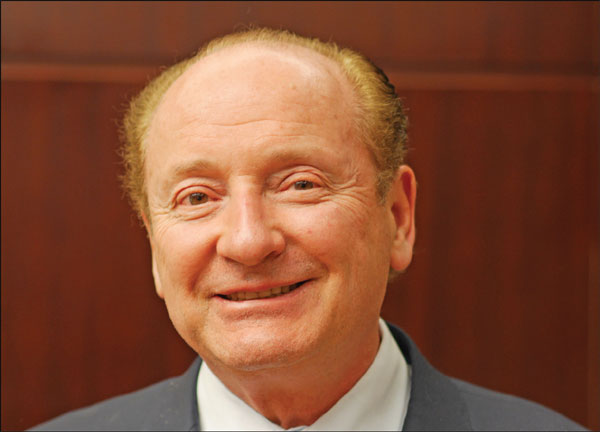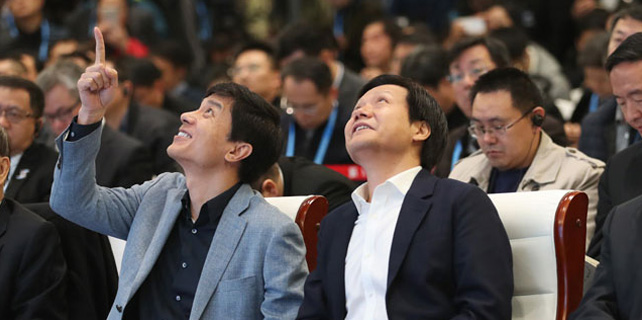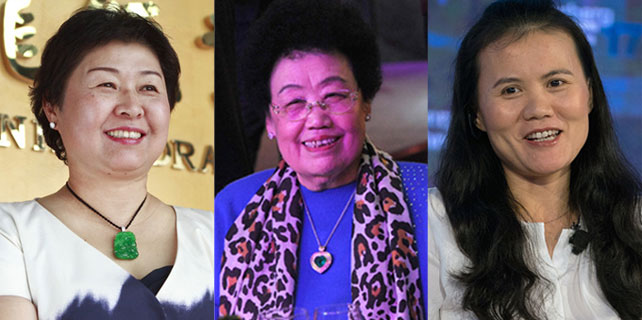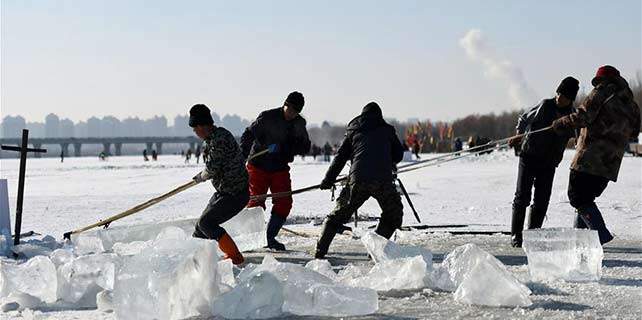Turning ideas into growth
Nobel-winning economist Robert C. Merton says financial innovation is key to the future of Asia
Robert C. Merton's career demonstrates how scientific research can transform the real world.
The work he did, along with colleagues Myron Scholes and Fischer Black, in the early 1970s on how to calculate the value of options and other derivatives was immediately useful to banks, traders, investors and other financial practitioners. Before this work, many useful financial products could not be made available because no one knew how to determine the costs or risks. Now his work is the foundation of a trillion-dollar industry.
|
Robert C. Merton says a well-functioning financial system is central for global economic development. David Blair / China Daily |
"With the options model, we became well-known right after writing the models down. Scholes and I took it to Wall Street before it was even published. In two years, it went from being a pure idea to being used by everybody in the markets," he says in an interview with China Daily.
"Texas Instruments created a special hand calculator for the people on the floor of the Chicago Board Options Exchange because they didn't have computers at that time and weren't allowed to have telephones. They couldn't do it in their head. There was no way they could do this trading without our equations.
"Scholes called TI and asked for a royalty. They said no, it's in the public domain. We knew that, we put it in the public domain. He asked if we could at least get a free calculator and they said no," Merton recalls.
"Financial innovation has been enormously valuable, and we've made great progress around the world," he emphasized in a recent speech to the Belt and Road EMBA Program for Southeast Asia at the People's Bank of China School of Finance at Tsinghua University.
"A well-functioning financial system, one that allows risk management, raising funds and so forth, is a mechanism by which scientific or technological ideas get turned into growth. It's not magic. Implementation is a huge part of innovation. Those who tell you the real economy and the financial system are separate - that's a fiction," he said in the speech.
Merton, a longtime professor at Harvard and MIT and winner of the 1997 Nobel Prize in Economics, sees his role as that of an engineer looking for solutions.
By financial innovation, he means creating new types of tools and financial contracts that allow people to eliminate unnecessary risk or to be more efficient and productive.
For example, the main historical problem for banks is that their funding, mostly deposits, is short-term but their loans are long-term with fixed interest rates. If interest rates rise, the bank could be in trouble. Merton explains that so-called interest rate swaps, in which the bank swaps its fixed-rate assets with a counterparty that has floating rate assets, solved this problem that had plagued banks since they were first created.
Insurance, which is a financial product, allows people to be prepared for catastrophic events without having to set aside a huge portion of their wealth as a safety net.
"High savings rates more often reflect a poor financial system than a culture of saving for the future. If you have a well-functioning financial system, you don't have to save personally for that one chance that your house burns or some bad thing happens," he tells China Daily.
However, not all financial innovations are good. "I can't dream of a way for bitcoin to succeed," he says.
Merton says that he does not want to give specific advice to China or other countries. But he does want to talk about things that are strategic and especially wants people to understand the benefits of financial innovation.
For example, in his speech to the Belt and Road EMBA students, Merton made a plea for them to consider the role of finance as an integral part of the Belt and Road Initiative.
"When you are thinking about the Belt and Road overall, infrastructure, roads and transportation are important. But don't forget the financial system. It may look intangible, but it's very real. A well-functioning financial system is central for global economic development. If you are going to really integrate economies along the path of the Belt and Road, you need an integrated financial system. You don't have to have one currency or one financial system. One currency is not usually a good idea. But, the financial systems should work together," he said.
"The places along the road that don't have good financial systems are going to be logjams. If a country does not have it's own financial system, it can't really develop growth opportunities. It's not good enough to say we'll provide financing from outside," he said.
Merton refuses to give advice or answer questions outside his specialization.
Immediately after finding out that he had won a Nobel Prize, he received advice from Paul Samuelson, who was a very famous economist and one of the earliest winners of the Nobel for economics.
"Samuelson, who was my mentor, took me aside and said that the Nobel Prize is not for the renaissance man of economics, it is for a very specific thing. Now, they will think you not only know everything about economics, they will think you know everything. They will ask you medical questions," Merton recalls.
In his speech at the PBC School of Finance, Merton presented his research on the costs to Chinese investors of not being able to invest worldwide. A central tenet of finance science is that the optimal tradeoff between risk and return for an investor is an index of all the assets in the world. Using data from 1993 to 2015, he calculates that the expected return to a China-only portfolio would be three percentage points less than that of a world portfolio.
That may not sound like much, but over 24 years, roughly a generation, a pension fund would lose out on half its potential value by not investing worldwide. That's a huge problem for an aging society, he said.
Not wanting to present a problem without suggesting a solution, Merton proposed a financial product that he calls a "total return swap".
He proposed that China's pension funds sign contracts with large institutional investors such as the sovereign wealth funds of Norway or Singapore. The contract would say that, each year, the Chinese funds pay the outsiders the total returns from their investments in the Chinese stock markets. The outsiders pay the Chinese funds the gains from the world index fund. No actual stocks change hands and capital controls can remain in place.
This illustrates how financial innovation can solve a problem. Chinese pension funds increase their expected returns by diversifying their risks worldwide. International investors, in exchange, get more access to the returns of the Chinese markets. Such a win-win solution significantly increases the real wealth and reduces the risks of all parties, he says.
Merton says that in fall 2012 he made a commitment to himself to "return, and return, and return," to Asia. Last year, he spent more than 15 weeks in the region.
Explaining that Asian governments are looking seriously for solutions, Merton says: "I don't mind going to Europe as a vacation, but going there as a policy adviser is a nightmare. They don't even like academics. The US has been doing it for a long time and is a little better.
"China has to be open," he adds. "You cannot do Belt and Road and stay a closed economy. You cannot be a world leader and have a reserve currency if there are capital controls."
"China's middle class is approaching the same size as the entire population of the United States. They will need far different financial services. When you get things done is when there is need for such change."
He says that China's need for new financial services, and its commitment to the Belt and Road, gives it a chance to leapfrog even the best practices of the past to build an innovative new financial system.
davidblair@chinadaily.com.cn
Bio
Born: July 31, 1944, in New York City
Education:
Bachelor of science in engineering mathematics, Columbia University
Master of science in applied mathematics, California Institute of Technology
PhD in economics, Massachusetts Institute of Technology
Career highlights:
Named a full professor at MIT at 29
Elected a member of American Academy of Arts & Sciences, 1986
President, American Finance Association, 1986
His book Continuous-Time Finance was published, 1990
George Fisher Baker Professor of Business Administration, Harvard Business School, 1988-1998
Elected a member of the National Academy of Sciences, 1993;
Nobel Memorial Prize in Economic Sciences, 1997, for new methodology to value derivatives
John and Natty McArthur University Professor, Harvard University 1998-2010
Establishment of Robert C. Merton (1970) Professor of Financial Economics professorship at MIT, endowed by colleagues and former students, 2005
School of Management Distinguished Professor of Finance, MIT, 2010
Resident Scientist, Dimensional, 2010-
Book recommendation: Andrew Lo, Adaptive Markets: Financial Evolution at the Speed of Thought
Favorite film: The Sting
Music recommendation: Antonin Dvorak's New World Symphony
Food: Anything Italian
( China Daily European Weekly 01/19/2018 page32)



















